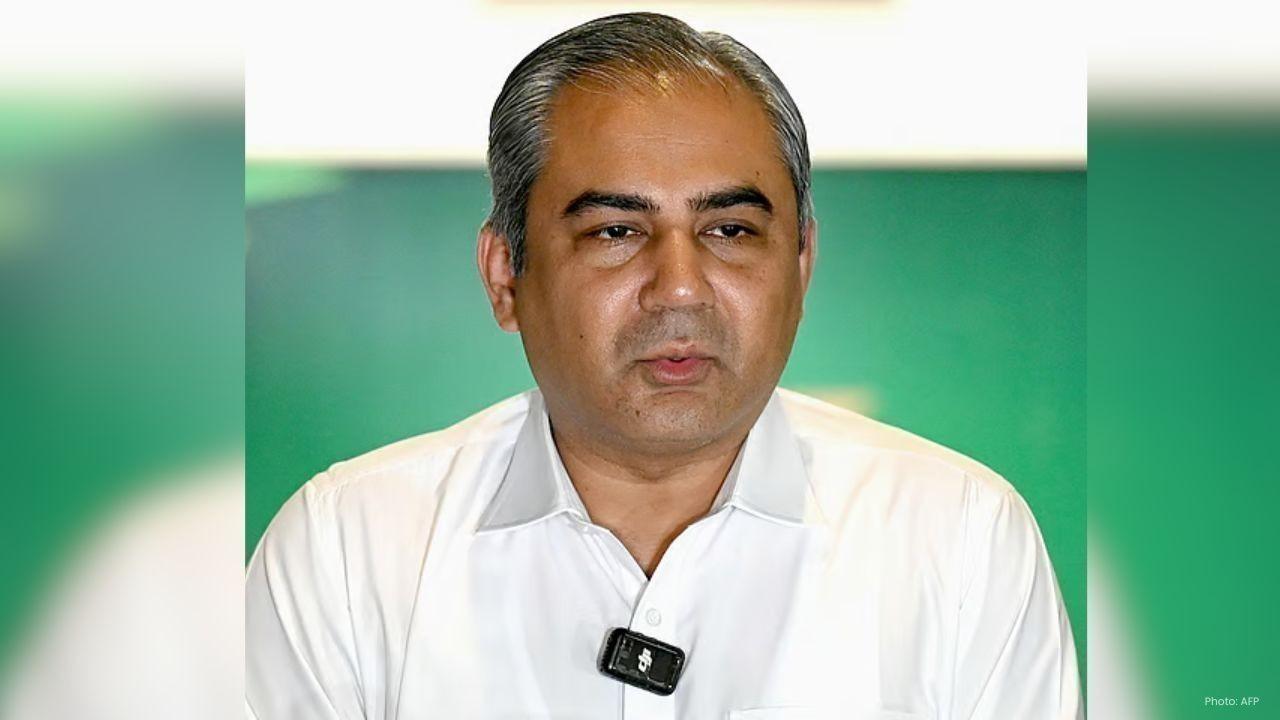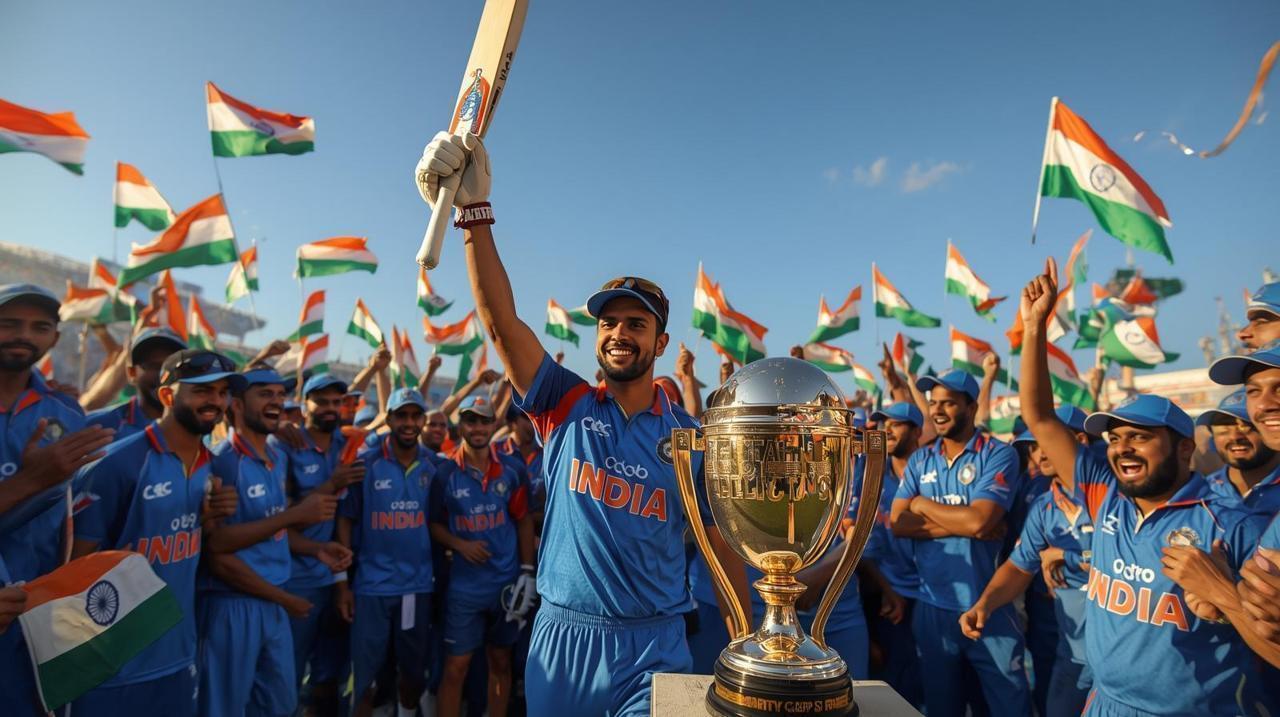
Post by : Monika
FIFA, the world football governing body, is considering a new plan that could make the 2030 World Cup the biggest tournament in history. The idea is to include 64 national teams instead of the 48 teams that are planned for the 2026 World Cup. This change is being discussed to celebrate the 100th anniversary of the first ever World Cup, which was held in 1930 in Uruguay.
The proposal for a 64-team tournament was first suggested by the Uruguayan Football Association in March 2025. Uruguay, along with Argentina and Paraguay, hosted the first World Cup in 1930. This idea is seen as a tribute to the origins of football’s most important event. If approved, the 2030 World Cup would be a one-time special edition, with more matches and more teams than any previous World Cup.
Currently, the 2026 World Cup, which will be held in the United States, Canada, and Mexico, will feature 48 teams. If FIFA approves the 64-team plan for 2030, it would involve 128 matches, which is almost double the number of games played in the 2022 World Cup in Qatar. This expansion is expected to make the tournament longer and more exciting, but it will also present some challenges in terms of scheduling and logistics.
FIFA officials have been in discussions with leaders from Uruguay, Paraguay, Argentina, and CONMEBOL, the South American football organization. The President of CONMEBOL, Alejandro Dominguez, has publicly supported the idea. He said that football should be shared with all countries and that celebrating the 100th anniversary with more teams would allow more nations to participate and enjoy the global event. Dominguez emphasized that football is a sport that brings people together and should be accessible to as many countries as possible.
Despite the enthusiasm, there are also concerns about this proposal. Some critics argue that adding more teams could put too much pressure on the football calendar, which is already crowded with international and club matches.
Players already face long seasons, traveling frequently for tournaments, and having more World Cup matches could increase fatigue and risk of injuries. Football experts say FIFA must carefully plan the tournament to ensure that players can handle the extra games without impacting their performance or health.
The 2030 World Cup will be hosted across three continents: South America, Europe, and Africa. Spain, Portugal, and Morocco are expected to host matches in Europe and Africa, while Uruguay, Argentina, and Paraguay will host matches in South America.
This arrangement honors the history of the tournament and provides fans across the world the opportunity to watch matches in multiple regions. The opening games are expected to take place in Uruguay, Argentina, and Paraguay, paying tribute to the countries that hosted the first-ever World Cup.
FIFA’s plan for 64 teams is a significant departure from traditional World Cup formats. In past tournaments, the number of participating teams was much smaller. For example, the first World Cup in 1930 featured only 13 teams.
Over the years, FIFA gradually expanded the tournament, and the current format has 32 teams, which was increased to 48 teams for the 2026 World Cup. Moving to 64 teams would be a record-breaking expansion, making it the largest football tournament in history.
The plan is also expected to include a return to 48 teams in 2034, meaning that the 64-team edition will be a special one-time celebration. FIFA has not yet made a final decision, and the proposal is still under review.
The organization will carefully consider factors such as scheduling, player workload, stadium availability, and travel logistics before approving the plan. FIFA also needs to ensure that the tournament remains competitive and fair for all participating teams.
Football fans around the world are excited about the possibility of seeing more nations compete in the World Cup. A 64-team tournament would allow smaller countries, which have rarely qualified in the past, to participate on the world stage.
This would not only give these nations valuable experience but also increase global interest in football. Countries from Asia, Africa, and smaller European nations may have a better chance to showcase their talent and compete against football powerhouses.
In addition to increasing the number of teams, the 2030 World Cup will be celebrated in a unique way because it marks 100 years of World Cup history. FIFA wants the tournament to honor the legacy of football, including its first edition in Uruguay in 1930.
The centenary celebrations will likely include special ceremonies, historical exhibitions, and media coverage that highlights the growth and development of the sport over the past century.
The logistics of a 64-team tournament are complex. With 128 matches, FIFA will need to plan the schedule carefully to avoid conflicts with domestic leagues and other international tournaments. Stadiums will need to meet FIFA standards, including seating capacity, pitch quality, and safety measures.
Travel for players, officials, and fans will also be a challenge, especially since matches will take place on three continents. FIFA will need to coordinate closely with host nations to ensure smooth transportation, accommodation, and security arrangements.
Despite the challenges, many believe that the 64-team plan will be beneficial for football. It will give more players the chance to compete on the world stage, increase global fan engagement, and generate higher revenue from ticket sales, sponsorships, and broadcasting rights. The larger tournament may also encourage investment in football infrastructure in host countries, improving stadiums, training facilities, and youth programs.
FIFA has a strong tradition of using the World Cup as a platform for global football development. The 64-team plan aligns with this goal by giving more nations the opportunity to participate and gain exposure. Smaller football nations may benefit from experience, coaching, and international attention, which can help grow the sport in their countries. This inclusivity reflects FIFA’s vision of spreading football to all corners of the globe.
The announcement of a potential 64-team World Cup has already generated excitement among football fans and media worldwide. Fans are imagining new rivalries, surprising upsets, and historic moments that could occur in such a large tournament.
Football analysts are also debating how the competition format would work, including how teams would qualify, how groups would be structured, and how knockout rounds would be organized.
FIFA has yet to release detailed plans, but experts predict that the tournament could follow a group stage and knockout format, similar to previous World Cups. With 64 teams, there could be 16 groups of four teams each.
The top teams from each group would advance to the knockout stages, which would include rounds such as the Round of 32, Round of 16, quarterfinals, semifinals, and the final. Organizers will need to ensure that the tournament remains competitive and exciting for fans while giving every team a fair chance to succeed.
Another key consideration is broadcasting and media coverage. A 64-team World Cup would attract huge global attention, and broadcasters would need to plan for extensive coverage of all matches.
This could include live broadcasts, highlights, and digital streaming options to reach fans around the world. Media coverage will play a crucial role in making the tournament accessible and engaging for millions of fans who may not be able to attend matches in person.
The 2030 World Cup will also focus on fan experience and safety. FIFA and host countries will need to ensure that stadiums, transport systems, and public areas are safe and enjoyable for fans.
With more matches and more attendees, planning for crowd management, security, and health protocols will be important. Organizers will also consider ways to make the event memorable for fans, such as fan zones, cultural events, and interactive activities.
In conclusion, FIFA is considering making the 2030 World Cup the largest tournament in history with 64 teams to celebrate its 100th anniversary. The plan is supported by South American nations and CONMEBOL, but FIFA will carefully consider all aspects before making a final decision.
The tournament will be played across three continents, with matches in Uruguay, Argentina, Paraguay, Spain, Portugal, and Morocco. While there are challenges in scheduling, logistics, and player workload, the plan has the potential to increase global participation, fan engagement, and football development worldwide.
If approved, the 64-team World Cup will be a historic event, creating new opportunities for smaller nations and providing fans with an unforgettable football experience. After this special edition, the World Cup will return to the 48-team format in 2034, ensuring that the centenary tournament remains unique and memorable in football history.
FIFA World Cup 2030 64-team World Cup










Sinner & Swiatek Shine at China Open: Semifinal Spots Secured
Jannik Sinner and Iga Swiatek advance to the semifinals at the China Open. Read about their victori

Michigan church attack kills 4, injures 8 in shocking violence
A gunman drove into a Michigan church, fired shots, set fire, killing 4 and injuring 8 before police

Moldova’s Pro-EU Party Secures Majority in Key Vote
Moldova’s pro-European PAS wins a strong majority in the parliamentary election, weakening pro-Russi

Gabriel’s late header gives Arsenal 2-1 win at Newcastle
Arsenal snatch dramatic 2-1 win at Newcastle as Gabriel heads the winner in stoppage time; Merino eq

Air France Flight 447 Trial Opens 16 Years After Tragic Crash
Sixteen years after the Air France Flight 447 crash, a trial opens against Air France and Airbus. Le

Europe close to Ryder Cup win after strong weekend play
Team Europe is on the verge of winning the Ryder Cup, showing great form in Italy and needing only a